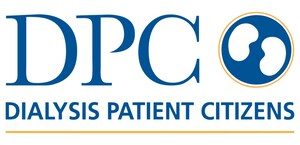Georgia Kidney Community Recognizes World Kidney Day; Echoes Need for Legislation to Improve Access to Dialysis and Transplant Care
Patients Applaud Senate-Passed Medigap Legislation for Enhanced Patient Access to Insurance Coverage for Kidney Care; Look Forward to Working with House on Similar Effort
ATLANTA, March 11 /PRNewswire-USNewswire/ -- In recognition of World Kidney Day today, members of the state's kidney community including patients, caregivers, family members and advocates from across Georgia are calling on their legislators to support policies that will enhance patients' access to health insurance for essential medical care. Designated as a day to increase awareness of chronic kidney disease (CKD) around the world, members of the kidney community in Georgia are also encouraging state lawmakers to support policies that improve access to life-saving dialysis care and essential anti-rejection drugs needed following a kidney transplant.
Just last month, the state Senate unanimously passed "Medigap" legislation (S.B. 316), sponsored by Senators Don Thomas (R-Dalton) and Ed Harbison (D-Columbus), to help approximately 2,000 Georgians suffering from kidney failure who are having difficulty accessing needed health insurance coverage. Kidney community members are also looking forward to working with the state House of Representatives to address this important patient access issue following their return to session this week.
"I applaud my colleagues in the Senate for recognizing the value of expanded access to Medigap coverage and for supporting improved access to life-saving kidney care," said Senator Don Thomas. "In honor of World Kidney Day today, I also encourage all Georgians to take time to learn more about the importance of kidney health."
While Medicare covers most medical costs for end stage renal disease (ESRD) patients, it still requires patients to pay deductibles and co-pays. Under current federal law, only Medicare beneficiaries over the age of 65 are able to purchase Medigap insurance as secondary coverage. Patients under the age of 65 do not have this same option. Most patients have some type of secondary insurance to help with these costs; however, approximately 2,000 Georgians under age 65 with kidney failure do not have access to this coverage intended to help them and patients deemed disabled access essential medical treatments, including kidney transplant.
In addition, Medigap coverage protects many patients from having to "spend down" their income to become eligible for state Medicaid insurance. If Medigap legislation is enacted, fewer people will be forced to enter Georgia's Medicaid program, resulting in Medicaid savings of up to $20 million over the next five years.
"As a dialysis patient who has had to spend down my income to become eligible for the Medicaid program to help pay for my mounting medical bills, I am proud to lend my voice to this effort and I strongly urge all lawmakers to support expanded access to Medigap," David Smith, a dialysis patient from Cumming. "On today of all days, we must acknowledge that all kidney patients should be able to get the care they need without cost or financial status being a factor."
"As the rates of kidney disease and kidney failure continue to increase in Georgia and nationally, it is critically important for patients to have access to the life-saving and life-enhancing care they require," said Marlin R. Gottschalk, vice-president and legislative coordinator for the Georgia Association of Kidney Patients. "In addition to supporting increased education and awareness, we must also emphasize the value of patient-centered policies to improve access to care, such as increased Medigap access to ESRD and disabled patients of all ages."
Georgia currently ranks ninth in prevalence of ESRD among all fifty states. Today, more than 14,700 Georgians suffer from ESRD and thousands more have Chronic Kidney Disease (CKD). Nationally, approximately 527,000 patients in the United States are living with kidney failure. Chronic kidney disease and kidney failure rates are on the rise across the country and particularly among minority communities such as African Americans, Hispanic and Asian patients who make up more than half the ESRD patient population. Patients experiencing kidney failure rely on lifesaving dialysis treatments to remove toxins from the blood in place of their failed kidneys.
"In celebrating World Kidney Day, the patient community is calling much needed attention to the importance of proper kidney health, disease prevention and access to quality dialysis care," added Chad Lennox, Executive Director of Dialysis Patient Citizens, a national, non-profit organization representing approximately 1,300 members in Georgia. "As part of this special day, we are also urging lawmakers to supporting policies such as Medigap reform, which is a critical step to ensuring patient access to dialysis and transplant care."
SOURCE Dialysis Patient Citizens
WANT YOUR COMPANY'S NEWS FEATURED ON PRNEWSWIRE.COM?
Newsrooms &
Influencers
Digital Media
Outlets
Journalists
Opted In





Share this article